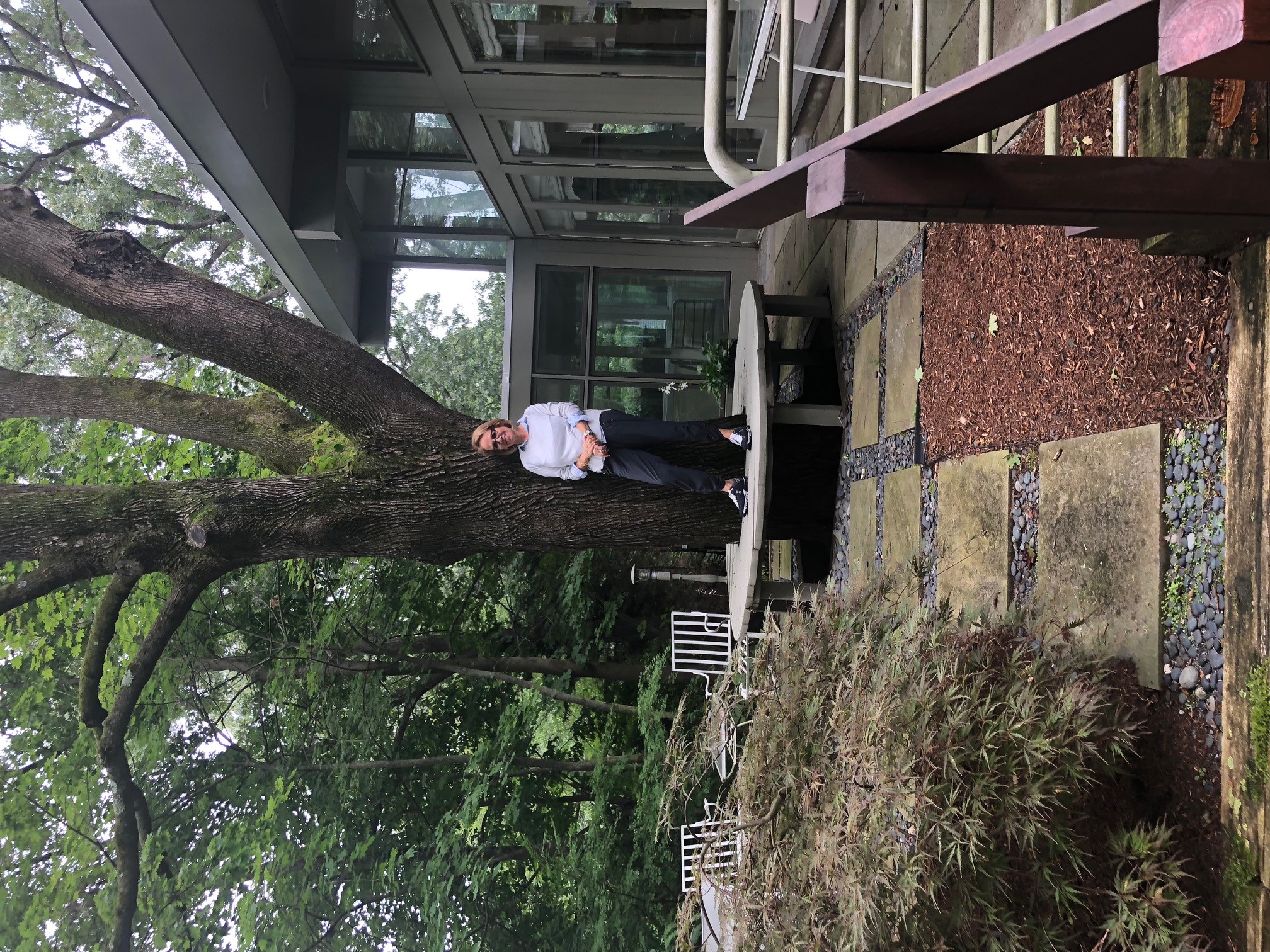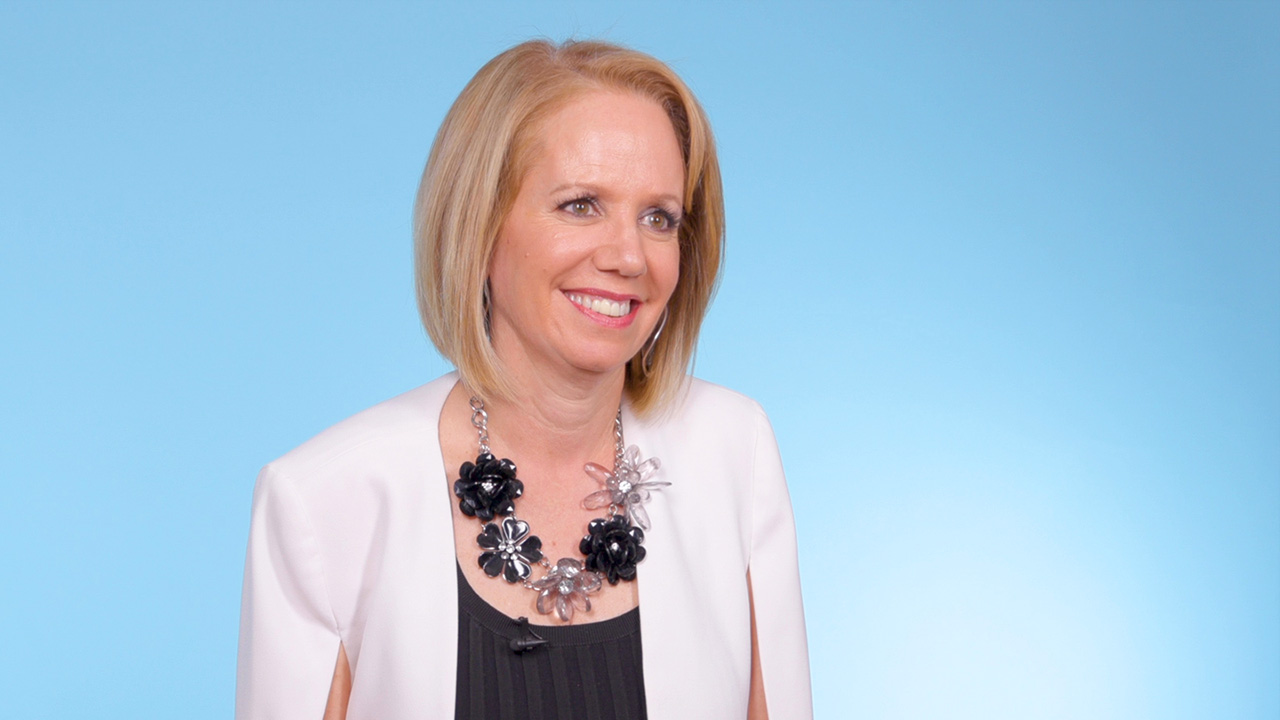Building a strong company culture wasn’t a top priority of Liz Kaplow’s when she founded her public relations agency Kaplow Communications nearly thirty years ago. No one was talking about work culture then, and for her, what mattered most was that she and her people did their work, and did it well.
Her line of thinking on this matter changed about ten years ago, both because a new generation of employees demanded more attention be given to culture, and because Kaplow found herself inspired by a tree. Yes, a tree. It stood regally outside her new home with her husband, and the donut-shaped bench around the base of the tree made it an ideal spot for ruminating and soaking in the mood-boosting properties of nature. “The rest of the house was in total shambles. I couldn’t even believe that we got a house like this that needed so much work done, but that tree was amazing,” she tells Thrive, adding that when next to the tree, she felt grounded, at ease. “I started wondering if I could transfer that feeling of peace I felt into the culture of our office,” she explains.

Fast forward to today, and Kaplow’s agency lives by a culture of T.R.E.E, which stands for, trust, respect, energy, and enthusiasm. “Those four words are the basis of the work we do,” she explains. “They represent that amazing tree. Something that’s growing, that has roots — it sounds a little bit crazy, but everybody talks about it in our office. It’s become the root of our culture.”
Below and in Kaplow’s “How I Thrive” video, the CEO shares how a welcoming work culture can be its own productivity boost, why the basics of professionalism shouldn’t be forgotten, and why the phrase “I’m for you” packs a powerful punch.
What’s one unexpected way you’ve learned to manage stress?
It sounds a little bit counterintuitive, but one unexpected way that I’ve learned to manage stress is actually to embrace it. It’s this idea that rather than pushing stress away so that we’re not clear about what’s actually bothering us, I believe in this idea of embracing it and trying to be clear on the root cause. When we do that, we’re able to take the time to be thoughtful about a solution. Another way to manage stress is to think about all of the goodness that comes out of human interaction, and to think about people you can go to who really can help talk an issue through. And you should choose wisely. It could be a best friend who makes you laugh. It could be your mom who always has the best advice. In business, think about someone who’s very, very collaborative, who’s going to listen well and respond well. I honestly believe that human interaction is the best medicine for stress
What’s the best way to respond to a mistake you’ve made at work, or at home?
I look at [the mistake] and immediately own it, bring my own accountability to it. And then say it out loud. Sometimes no one’s near me, so I’m going to say it to myself. If it has to do with causing a mix-up or difficulty with someone else, I say it to that person, and that kind of accountability tends to put that other person at ease. The other very, very important thing about making mistakes is to take a few minutes to think about what I can take away from that, and really punctuate on how to do it differently moving forward in a similar situation. How to learn from it. And then to practice that difference so it becomes an institutionalized behavior, and you’ll make fewer of those mistakes.
What tips do you have for new managers?
New managers are an interesting case. A new manager wants to be heard, respected, listened to, and that’s not always easy. So I tell new managers to take their time. To step back, to listen, to get to know the situation. I tell them not to feel on day one that they have to be the boss, or even that they have to be the leader. I think whatever amount of time that person needs, take that time. Get to know the people on your team. Listen to them. Learn what their strengths are. Some have weaknesses. Maybe somebody has not exactly been in the right job, or they’ve been frustrated by another manager who came before you. So, I think that one of the mistakes that new managers make is that they go so quickly in wanting that respect, but I tell them to slow things down.
What’s the worst career advice you’ve received?
The worst piece of advice that I have ever received — and it was from someone I really respected, so I almost listened, but thank goodness I didn’t — was to hop often from job to job. I think that idea still remains today because it’s a way that you can keep progressing. You can keep getting up the ladder, in terms of salary and all those things. What I actually believe, though, is that if you’re in a place with a strong culture, if you’re in a place with good job opportunities where you can be heard and where you can raise your hand, you can actually do very, very well.
What about the best career advice you’ve received?
I don’t know if it’s the most exciting, but the best advice I ever received — it may seem kind of old school, but it’s absolutely new school when you think about how much it applies — is to remember the basics. To remember some of the things that our grandparents told us, like having a great work ethic, showing up on time, being able to look someone in the eye, shaking hands, being able to write in a succinct, but powerful way that persuades somebody to do something or captivates or brings emotion. These are basics, but we’re moving past them. If you think about some of those during the course of your day, all of your interactions will cumulatively get stronger as a result.
How do you boost productivity throughout the day?
I think you have to walk around. You have to stretch. And you should talk to people while you’re doing it, because people boost each other’s productivity. What I mean by that is when you walk over to somebody in a positive way with good energy, they bring that energy back to you. So, if you have an open office, get up a lot. Make eye contact. Have a quick chat. If it’s another floor, walk up the steps and do all of those things. Send a positive message with your smile, with something good that’s happening. It’s a way to bring your good energy and optimism to others, and then it’s this kind of magical reciprocal thing that ends up cumulatively boosting productivity for the whole office.
What are your tips for mindfully communicating with colleagues about challenging topics, or delivering critical feedback?
First, you should think through the lens of the person who will be receiving the feedback. Have they struggled with something? Is there something going on for them that could be making the task difficult, or causing confusion? Then, put them on some sort of level playing field. My best friend and I used to have this thing, we’d say “I’m for you.” Basically that means that we knew that we always wanted the best for each other. If you can go into the conversation with that frame of mind when giving feedback, the person won’t feel attacked or get defensive. They’ll know that you are trying to help them. And you’ll have more of their attention, and a better chance of them not only receiving your feedback, but making change from it.
Follow us here and subscribe here for all the latest news on how you can keep Thriving.
Stay up to date or catch-up on all our podcasts with Arianna Huffington here.


